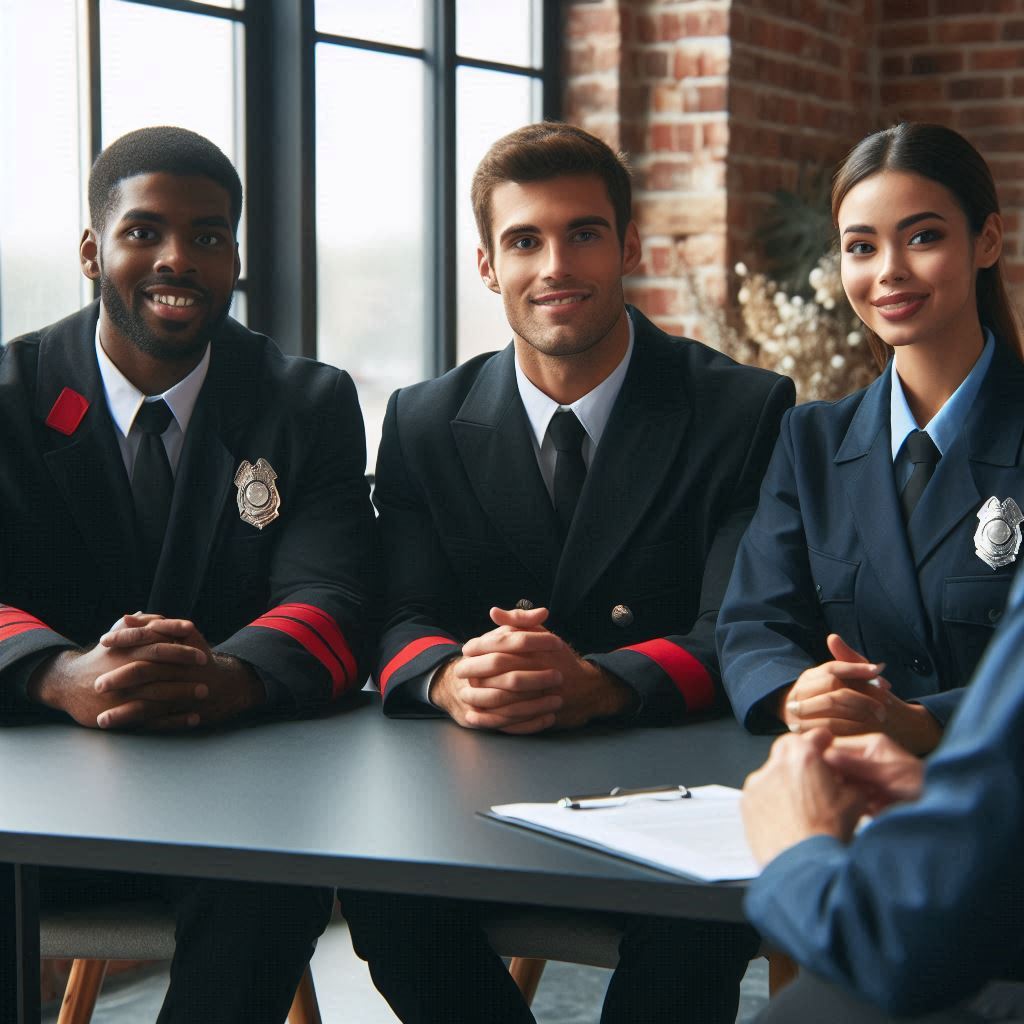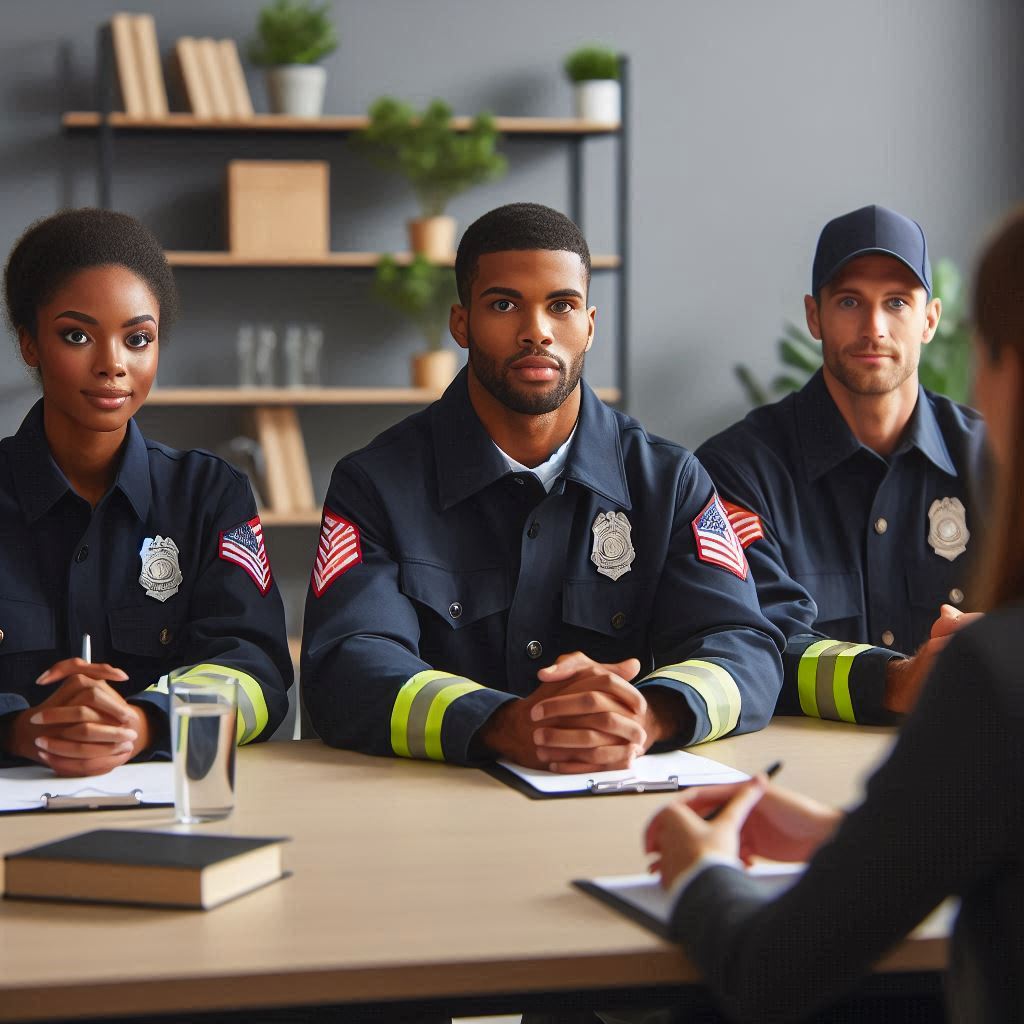
When preparing for a firefighter interview, it’s crucial to anticipate the questions that may come your way. As someone who has navigated the challenging process of firefighter interviews, I understand the importance of being well-prepared. In this article, I’ll delve into 51 firefighter interview questions that you should be ready to tackle.
From situational scenarios to questions about your experience and motivation, firefighter interviews can cover a wide range of topics. By familiarizing yourself with these common questions and crafting thoughtful responses, you can boost your confidence and stand out as a strong candidate. Let’s dive into these 51 firefighter interview questions to help you ace your next firefighting interview.
General Questions
- Why do you want to be a firefighter?
- I want to serve my community and help people during their most challenging times.
- What qualities do you think are essential for a firefighter?
- Courage, teamwork, resilience, and strong communication skills are vital.
- How do you handle stress?
- I manage stress through physical exercise and mindfulness techniques, remaining calm under pressure.
- Describe a challenging situation you faced and how you handled it.
- I once had to lead a team during a fire drill where equipment malfunctioned. I quickly reassured the team and adapted our approach to complete the drill successfully.
- What motivates you to continue a career in firefighting?
- The desire to make a difference and protect lives inspires me every day.

Firefighting Experience Questions
- Can you describe a challenging firefighting scenario you successfully managed?
- I assisted in a structure fire where we had to rescue occupants. Through teamwork and swift action, we successfully evacuated the building.
- How do you stay updated on firefighting techniques?
- I regularly attend training sessions and workshops and read fire service literature.
- Share an example of working as part of a team during a rescue operation.
- During a car accident rescue, I worked with my team to use the Jaws of Life, communicating effectively to ensure we freed the victims safely.
- Have you ever faced a situation requiring a split-second decision? How did you handle it?
- Yes, during an emergency call, I had to quickly assess the scene and direct resources effectively, prioritizing safety first.
- Discuss a time you went above and beyond the call of duty.
- I organized a community fire safety event, providing free education and resources, which improved local fire awareness.
Problem-Solving Skills Questions
- How would you approach a situation where a colleague is not following safety protocols?
- I would address the issue directly with them, emphasizing the importance of safety and potentially report to a supervisor if necessary.
- Describe a quick decision you made under pressure.
- I had to decide whether to enter a smoke-filled room during a training drill. I assessed the situation and determined it was safe to proceed based on the conditions.
- If you arrive at a scene without essential equipment, what would you do?
- I would immediately communicate with my team and seek alternatives or additional resources from nearby units.
- How do you prioritize multiple emergencies?
- I would assess each situation based on the urgency and potential risk to life, addressing the highest priority emergency first.
- What’s your process for evaluating risks during an emergency?
- I analyze potential hazards, evaluate available resources, and develop a plan that prioritizes safety and effectiveness.
Situational Scenario Questions
- What would you do if you encountered a hostile situation while responding to a call?
- Assess the area for safety, retreat if necessary, and call for police assistance to secure the scene.
- How would you handle a wildfire close to residential areas?
- I would work with my team to establish a perimeter, protect structures, and coordinate with other agencies for support.
- Describe your approach to a medical emergency with multiple injured individuals.
- I would quickly assess the situation, triage patients based on severity, and direct resources to the most critical cases first.
- How would you respond if a fire involves hazardous materials?
- I would follow established protocols for hazardous materials, ensuring that my team is equipped with appropriate protective gear and containment strategies.
- If you needed to rescue someone trapped in a building, how would you proceed?
- I’d assess the safest route, communicate with my team, and use appropriate rescue techniques to evacuate the individual quickly and safely.
Commitment and Motivation Questions
- What drives your commitment to this career?
- My passion for helping others and contributing to community safety inspires my dedication to firefighting.
- How do you maintain motivation during tough shifts?
- I focus on the impact of our work and support my team, finding encouragement in each small success.
- Describe a moment when you felt proud of your service.
- Successfully rescuing a family from a burning building reinforced my commitment and pride in making a difference.
- How would you handle criticism from peers or superiors?
- I view criticism as an opportunity for growth. I would listen, reflect, and strive to implement constructive feedback.
- What does being a firefighter mean to you?
- It means being part of a team dedicated to protecting lives and serving the community, embodying strength and compassion.
Community Engagement Questions
- How do you engage with the community to promote fire safety?
- I participate in community events and give presentations on fire safety measures and prevention.
- Describe an experience where you educated the public on fire safety.
- I organized a fire safety workshop that included demonstrations on smoke alarms and home evacuation plans.
- What role should firefighters play in community outreach programs?
- Firefighters should actively engage with the community, building trust and providing education on fire prevention and safety.
- How do you build relationships with local organizations?
- I reach out to local groups, fostering partnerships through collaborative events focused on safety and education.
- If residents have safety concerns, how would you address them?
- I would listen attentively, assess their concerns, and provide accurate information or resources to help mitigate those issues.
Personal Reflection Questions
- What are your strengths as a candidate for this position?
- I possess strong communication skills, problem-solving abilities, and a commitment to continuous learning and improvement.
- What is your biggest weakness, and how do you manage it?
- I can be overly critical of myself; I manage this by seeking feedback from colleagues to maintain balance and perspective.
- How do you prepare physically for firefighting duties?
- I engage in regular fitness training, including strength and cardio exercises, to ensure I am fit for the demands of the job.
- Describe how you would demonstrate leadership in the department.
- I would lead by example, promoting teamwork and morale, and encourage open communication to foster a positive environment.
- What are your long-term goals within firefighting?
- I aim to advance my skills and potentially take on a leadership role, contributing to training and community outreach initiatives.
Scenario-Based Questions
- If you arrive at a fire scene and find people inside, what actions would you take?
- I would quickly assess the situation, report my findings, and execute a rescue if it’s safe, coordinating with my team to control the fire.
- How would you handle a situation where you encounter a child at a fire scene?
- I would ensure the child’s safety and comfort, keeping them calm and responding quickly to reunite them with their caregivers.
- What if you discover a fellow firefighter is struggling during a call?
- I would check in on them, offer support, and, if needed, notify a supervisor to ensure they receive any necessary assistance.
- During a hazmat incident, what are your first steps?
- I would establish a perimeter, assess the hazards, and implement safety protocols while ensuring personal protective equipment (PPE) is worn.
- Describe your response if you were trapped in a burning building.
- I would remain calm, find a safe exit if possible, and use my training to signal for help while protecting myself from smoke inhalation.
Final Thoughts
- What would you do if you lacked the necessary resources to complete a task?
- I would communicate the issue to my team and request additional support or equipment from other responding units.
- How do you handle the emotional aspects of firefighting?
- I rely on support from my team and engage in debriefings to process experiences and emotions consistently.
- What would you want your fellow firefighters to say about you?
- I would want them to say that I’m a dependable team player who always puts the safety of others first.
- How do you plan to stay physically fit in this role?
- I commit to regular exercise and training sessions tailored to the demands of firefighting through strength and endurance workouts.
- What impact do you hope to have in your community as a firefighter?
- I hope to foster a greater sense of safety and preparedness among residents while empowering them through education about fire safety.
Dedication and Commitment
- What does community service mean to you?
- It means actively contributing to the well-being and safety of others, building strong relationships, and fostering communal trust.
- How do you handle conflicts within a team?
- I address conflicts openly and respectfully and focus on solutions that reinforce team dynamics and cohesion.
- What role does training play in your commitment to firefighting?
- Continuous training is vital for readiness and effectiveness; it equips me with the skills needed to respond to emergencies confidently.
- How would you celebrate team accomplishments?
- I believe in recognizing achievements publicly, either through team meetings or community events, to strengthen morale and unity.
- What are some common misconceptions about firefighting?
- Many people underestimate the training required and the toll the job can take emotionally and physically.
- In one sentence, how would you describe your readiness to be a firefighter?
- I am ready to serve my community with a strong sense of dedication, well-honed skills, and a commitment to lifelong learning.
Summary
These 51 firefighter interview questions and short answers cover a wide range of topics to prepare candidates for various aspects of the interview process. Practicing these questions can help candidates articulate their experiences, skills, and motivations, showcasing their readiness for the challenging and rewarding role of a firefighter.
